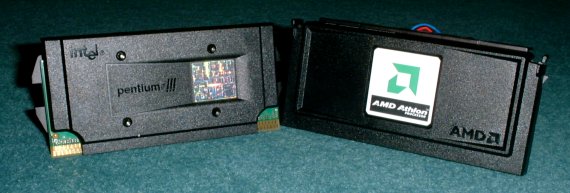Performance-Showdown between Athlon and Pentium III
Get Tom's Hardware's best news and in-depth reviews, straight to your inbox.
You are now subscribed
Your newsletter sign-up was successful
Introduction
Athlon At 500, 550, 700 And 750 MHz!
Although I might take the risk of boring you with even more Athlon-stuff, I decided to beef up the information about AMD's new CPU on this website. It's most likely that we at Tom's Hardware are the first to present Athlon at clock speeds of 500, 550, 700 and 750 MHz and thus we didn't want to waste any more time and decided to post our findings. Most of you might be very surprised that we could run Athlon at all those clock speeds, considering the fact that Athlon is normally not overclockable. Tom's Hardware Guide found a way around that, but so far I've decided to keep the information on how in between the walls of my lab. Let me tell you why, before some of you start getting upset about my decision. Overclocking Athlon is not a 'Softmenu' or 'jumper/dipswitchy' kind of job. It requires quite a bit of technical knowledge and electronical abilities. I'd say that only people who weren't afraid of doing the SMP-'operation' on Slot1-Celerons could possibly consider facing Athlon-overclocking. It requires cracking open of the Athlon-housing and then the real fun starts with several SMD-components. That's all I want to say about this topic for the time being and it's useless to ask me in emails. I will keep the information under disclosure for now, but as soon as I found an easy way for you I'll finally post it. Please give me a few weeks. Until then I hope AMD won't strike down on me.
Get Tom's Hardware's best news and in-depth reviews, straight to your inbox.
Current page: Introduction
Next Page Athlon Delivered A Perfectly Stable Performance